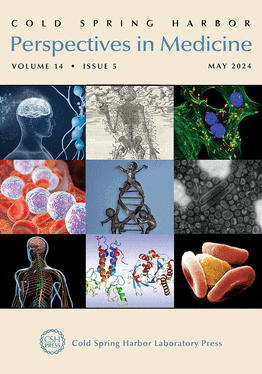李-弗劳米尼综合征临床治疗新范例
IF 7.8
2区 医学
Q1 MEDICINE, RESEARCH & EXPERIMENTAL
引用次数: 0
摘要
大约8.5%-16.2%的儿童癌症与致病/可能致病的种系变异有关--随着表型识别、测序和变异验证技术的改进,这种患病率可能会上升。其中一个信息量很大的经典遗传性癌症易感综合征是李-弗劳米尼综合征(LFS),它与 TP53 肿瘤抑制基因的种系变异有关,一生中患癌症的累积风险高达 90%。为了改善年轻 LFS 患者的预后,我们必须提高现有癌症监测计划的特异性和敏感性,并探索如何通过基于药理学的降低风险干预措施来补充早期检测策略。在此,我们将介绍新型精准筛查技术和降低癌症风险的临床策略。特别是,我们总结了从出生、无创和基于机器学习的癌症筛查中早期诊断 LFS 患者并对其进行风险分层的生物标志物,以及已显示有潜力重新用于癌症预防的药物。本文章由计算机程序翻译,如有差异,请以英文原文为准。
New Paradigms in the Clinical Management of Li–Fraumeni Syndrome
Approximately 8.5%–16.2% of childhood cancers are associated with a pathogenic/likely pathogenic germline variant—a prevalence that is likely to rise with improvements in phenotype recognition, sequencing, and variant validation. One highly informative, classical hereditary cancer predisposition syndrome is Li–Fraumeni syndrome (LFS), associated with germline variants in the TP53 tumor suppressor gene, and a >90% cumulative lifetime cancer risk. In seeking to improve outcomes for young LFS patients, we must improve the specificity and sensitivity of existing cancer surveillance programs and explore how to complement early detection strategies with pharmacology-based risk-reduction interventions. Here, we describe novel precision screening technologies and clinical strategies for cancer risk reduction. In particular, we summarize the biomarkers for early diagnosis and risk stratification of LFS patients from birth, noninvasive and machine learning–based cancer screening, and drugs that have shown the potential to be repurposed for cancer prevention.
求助全文
通过发布文献求助,成功后即可免费获取论文全文。
去求助
来源期刊

Cold Spring Harbor perspectives in medicine
MEDICINE, RESEARCH & EXPERIMENTAL-
CiteScore
14.30
自引率
1.90%
发文量
44
审稿时长
4-8 weeks
期刊介绍:
Cold Spring Harbor Perspectives in Medicine is a monthly online publication comprising reviews on different aspects of a variety of diseases, covering everything from the molecular and cellular bases of disease to translational medicine and new therapeutic strategies.
Cold Spring Harbor Perspectives in Medicine is thus unmatched in its depth of coverage and represents an essential source where readers can find informed surveys and critical discussion of advances in molecular medicine.
 求助内容:
求助内容: 应助结果提醒方式:
应助结果提醒方式:


